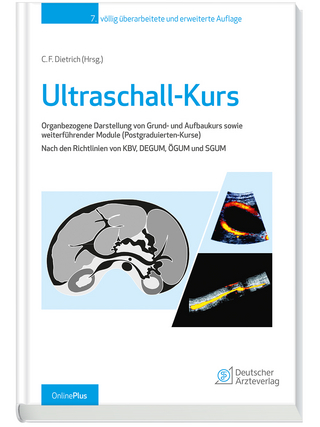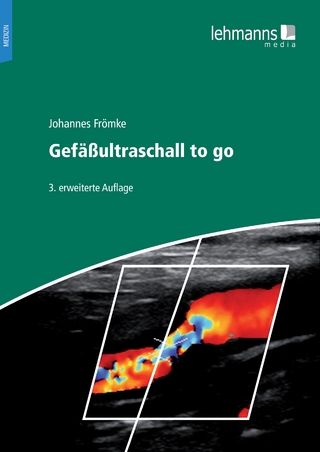
Atlas of Ultrasound and Ductal Echography of the Breast
Seiten
1995
Blackwell Science Ltd (Verlag)
978-0-632-03329-4 (ISBN)
Blackwell Science Ltd (Verlag)
978-0-632-03329-4 (ISBN)
- Titel ist leider vergriffen;
keine Neuauflage - Artikel merken
Describes the technique of ductal echography and the differences between it and current ultrasound examination procedures. The text includes over 800 ultrasound images of all the histologically proven cancers and should serve as a guide and atlas to sonographers and radiologists.
Containing no bone or gas filled structures and easily accessible, the breast should be an ideal organ for ultrasonic investigation. Unfortunately this is not the case; to date the images have always been disappointing and the accuracy as far as solid lesions are concerned has been poor. Consequently, ultrasound as a technique for diagnosing breast cancer has not been widely adopted. The situation is beginning to change. In the last two years there have been a number of important developments which suggest that ultrasound will fulfil its early promise and become a major investigative procedure for the early diagnosis of malignant lesions of the breast. It is now clear that one of the major problems in the detection of small lesions has been lack of appreciation of the importance of the anatomical structure of the breast. Evidence is beginning to emerge that breast cancer always arises within the milk ducts. There are between 50 and 20 milk ducts in each breast arranged radially around the nipple. The technique of ductal echography makes use of this anatomical structure and requires that the operator locates each duct in turn and follows it to the periphery of the glandual tissue.
Using this technique small cancers are much more clearly seen and identified earlier than is possible using conventional screening methods. The book describes the technique of ductal echography and the differences between it and current ultrasound examination procedures. The text is complemented by over 800 ultrasound images of all the histologically proven cancers and will serve as a guide and atlas to sonographers and radiologists engaged in the field of ultarsound mammography.
Containing no bone or gas filled structures and easily accessible, the breast should be an ideal organ for ultrasonic investigation. Unfortunately this is not the case; to date the images have always been disappointing and the accuracy as far as solid lesions are concerned has been poor. Consequently, ultrasound as a technique for diagnosing breast cancer has not been widely adopted. The situation is beginning to change. In the last two years there have been a number of important developments which suggest that ultrasound will fulfil its early promise and become a major investigative procedure for the early diagnosis of malignant lesions of the breast. It is now clear that one of the major problems in the detection of small lesions has been lack of appreciation of the importance of the anatomical structure of the breast. Evidence is beginning to emerge that breast cancer always arises within the milk ducts. There are between 50 and 20 milk ducts in each breast arranged radially around the nipple. The technique of ductal echography makes use of this anatomical structure and requires that the operator locates each duct in turn and follows it to the periphery of the glandual tissue.
Using this technique small cancers are much more clearly seen and identified earlier than is possible using conventional screening methods. The book describes the technique of ductal echography and the differences between it and current ultrasound examination procedures. The text is complemented by over 800 ultrasound images of all the histologically proven cancers and will serve as a guide and atlas to sonographers and radiologists engaged in the field of ultarsound mammography.
Introduction: Ductal Echography - The Anatomically Led Approach to the Breast; Quiz; Investigation of the Breast; Physical Aspects Of Ultrasound; Instrumentation; Anatomy of the Breast; Ductal Echography: The Correct Ultrasonic Approach to the Breast; The Plates:; Section A: Echographic Anatomy; Section B: Benign Diseases; Section C: Carcinomas; Listing of Cancers; Malignancies Diagnosed by De (1987-91); Index of Carcinomas; Ultrasound Doppler in Breast Disease; Artefacts in Breast Imaging; Epilogue: Ductal Echography - The Impact on Daily Practice; Postscript; References; Index
| Erscheint lt. Verlag | 7.6.1995 |
|---|---|
| Zusatzinfo | 1322 |
| Verlagsort | Oxford |
| Sprache | englisch |
| Maße | 219 x 267 mm |
| Gewicht | 1814 g |
| Themenwelt | Medizin / Pharmazie ► Medizinische Fachgebiete ► Gynäkologie / Geburtshilfe |
| Medizin / Pharmazie ► Medizinische Fachgebiete ► Onkologie | |
| Medizinische Fachgebiete ► Radiologie / Bildgebende Verfahren ► Sonographie / Echokardiographie | |
| ISBN-10 | 0-632-03329-0 / 0632033290 |
| ISBN-13 | 978-0-632-03329-4 / 9780632033294 |
| Zustand | Neuware |
| Haben Sie eine Frage zum Produkt? |
Mehr entdecken
aus dem Bereich
aus dem Bereich
Organbezogene Darstellung von Grund- und Aufbaukurs sowie …
Buch | Hardcover (2020)
Deutscher Ärzteverlag
99,99 €
Begleitbuch für Sonografiekurse, Klinik und Praxis
Buch | Softcover (2023)
Urban & Fischer in Elsevier (Verlag)
27,00 €


